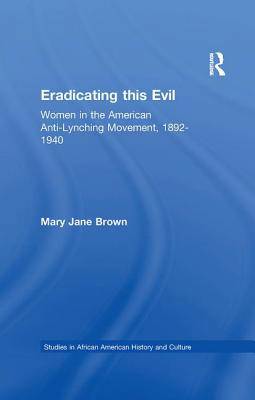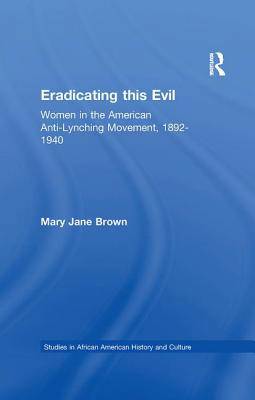
- Retrait gratuit dans votre magasin Club
- 7.000.000 titres dans notre catalogue
- Payer en toute sécurité
- Toujours un magasin près de chez vous
- Retrait gratuit dans votre magasin Club
- 7.000.0000 titres dans notre catalogue
- Payer en toute sécurité
- Toujours un magasin près de chez vous
99,45 €
+ 198 points
Format
Description
Rather than discussing one aspect of women's anti-lynching activism, this book examines the subject in its entirety, from the 1890s to 1940s. It also discusses how differing goals and perceptions of the problem led to conflict within the movement. In the last decade of the nineteenth century, black women began a protest against lynching that eventually swelled into a sizable movement. Ida B. Wells, one of the fist anti-lynching advocates, attacked the notion that lynching protected white women, proving with statistics that most men who were lynched were never even accused of rape but were hung for a variety of real or concocted offenses. Wells' fight against lynching included a strategy of investigation and exposure that eventually became the template for all anti-lynching activism. The founding of the National Association for the Advancement of Colored People in 1909 drew women of both races into the anti-lynching fight. In the 1920s, the NAACP began an unsuccessful two decade battle for federal anti-lynching legislation that brought the spotlight of public scrutiny to lynching. In the 1930s, a large group of southern white women organized under the leadership of Jessie Daniel Ames to reject the protection that lynching supposedly offered in their name. Organized as the Association of Southern Women for the Prevention of Lynching, the women were opposed to a federal law, yet sought to eradicate lynching through education and by engaging the support of local law officials. The decline of lynching in the late 1930s resulted from a combination of social and political factors; but women anti-lynching activists had an undeniable impact on helping bring about the decline of lynching. (Ph.D. dissertation, Ohio State University, 1998; revised with new preface, bibliography, and index)
Spécifications
Parties prenantes
- Auteur(s) :
- Editeur:
Contenu
- Nombre de pages :
- 368
- Langue:
- Anglais
- Collection :
Caractéristiques
- EAN:
- 9781138968929
- Date de parution :
- 27-04-16
- Format:
- Livre broché
- Format numérique:
- Trade paperback (VS)
- Dimensions :
- 140 mm x 216 mm
- Poids :
- 426 g

Les avis
Nous publions uniquement les avis qui respectent les conditions requises. Consultez nos conditions pour les avis.






